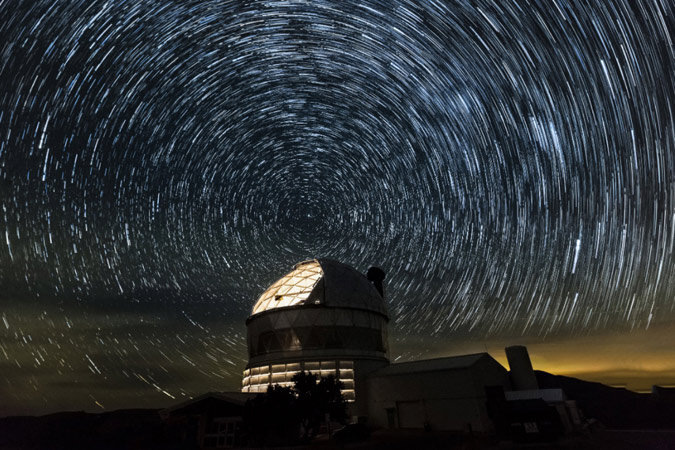
NEWS & INFORMATION

Modernized Oilfield Lighting Protects Night Skies, Benefits the Industry
Since 1932, McDonald Observatory has enjoyed nighttime skies as dark as any major astronomical observatory in the world. Its remote location, in the heart of the Davis Mountains of West Texas, seemed to ensure this for decades to come. With the boom in oil and gas related activities in and around the Permian Basin, and now in the greater Big Bend region, the past ten years has seen a gradual brightening, low, along the Observatory’s northern horizon.

Protecting the Dark West Texas Skies
McDonald Observatory has partnered with oil and gas organizations to protect the dark West Texas skies. This video details the issue of light pollution caused by oil and gas activities in the Permian Basin and their potential to effect the observatory's ability to study the cosmos.
The video also outlines solutions that are documented in an agreement for Recommended Lighting Practices for oilfield activity that has been published by the partnership of McDonald, the Permian Basin Petroleum Association and the Texas Oil and Gas Association. This project was made possible by a grant from Apache Corporation.

When Staying in the Dark is the Brightest Idea
PBPA gets behind an idea that is out of this world: the Dark Skies Initiative. Acting before drilling operations pose a serious problem in Reeves County and Jeff Davis County (and the Fort Davis area), oil companies get on board a plan to keep the skies dark above the McDonald Observatory.

